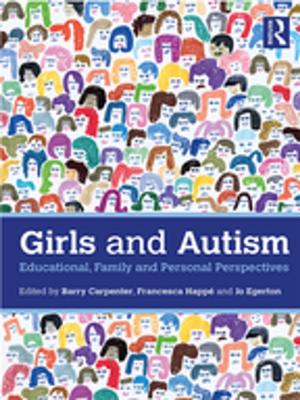Families Shamed
The Consequences of Crime for Relatives of Serious Offenders
Nonfiction, Social & Cultural Studies, Social Science, Crimes & Criminals, Criminology| Author: | Rachel Condry | ISBN: | 9781134013029 |
| Publisher: | Taylor and Francis | Publication: | January 10, 2013 |
| Imprint: | Willan | Language: | English |
| Author: | Rachel Condry |
| ISBN: | 9781134013029 |
| Publisher: | Taylor and Francis |
| Publication: | January 10, 2013 |
| Imprint: | Willan |
| Language: | English |
This book examines the experiences of relatives of those accused or convicted of serious crimes such as murder, manslaughter, rape and sex offences. A broader literature exists on prisoners' families, but few studies have looked specifically at those related to serious offenders, or considered their experience other than as prison visitors. Many of the difficulties faced by 'mundane' prisoners' families are magnified for the relatives of serious offenders, first by the length of sentence, and secondly by the seriousness and stigmatizing impact through association of the offence itself.
Families Shamed draws upon intense qualitative research which combines long, searching interviews with the relatives of serious offenders with ethnographic fieldwork over a period of several years. The book focuses on how relatives made sense of their experiences, individually and collectively: how they described the difficulties they faced; whether they were blamed and shamed and in what manner; how they understood the offence and the circumstances which had brought it about; and how they dealt with the contradiction inherent in supporting someone and yet not condoning his or her actions.
This is the first book to tell the story of serious offenders' families, the difficulties they face, and their attempts to overcome them. At the same time a focus on offenders' families also draws our attention to the ways in which women are affected by crime, illuminating the broader effects of crime and the criminal justice process on the proportionately greater number of women involved. It contributes also to wider debates about the social organization of the meanings of crime, and questions the tenability of some core policy assumptions about offenders and their families; the relationship between the state and the family, and its bearing especially on expectations about family responsibilities.
This book examines the experiences of relatives of those accused or convicted of serious crimes such as murder, manslaughter, rape and sex offences. A broader literature exists on prisoners' families, but few studies have looked specifically at those related to serious offenders, or considered their experience other than as prison visitors. Many of the difficulties faced by 'mundane' prisoners' families are magnified for the relatives of serious offenders, first by the length of sentence, and secondly by the seriousness and stigmatizing impact through association of the offence itself.
Families Shamed draws upon intense qualitative research which combines long, searching interviews with the relatives of serious offenders with ethnographic fieldwork over a period of several years. The book focuses on how relatives made sense of their experiences, individually and collectively: how they described the difficulties they faced; whether they were blamed and shamed and in what manner; how they understood the offence and the circumstances which had brought it about; and how they dealt with the contradiction inherent in supporting someone and yet not condoning his or her actions.
This is the first book to tell the story of serious offenders' families, the difficulties they face, and their attempts to overcome them. At the same time a focus on offenders' families also draws our attention to the ways in which women are affected by crime, illuminating the broader effects of crime and the criminal justice process on the proportionately greater number of women involved. It contributes also to wider debates about the social organization of the meanings of crime, and questions the tenability of some core policy assumptions about offenders and their families; the relationship between the state and the family, and its bearing especially on expectations about family responsibilities.















